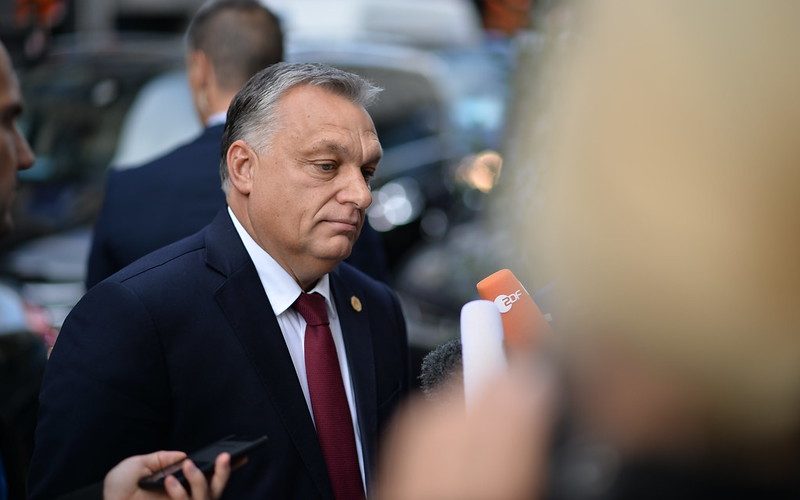On Wednesday, April 27, the European Commission took a historic step by finally triggering the Rule of Law Mechanism, also known as the Conditionality Mechanism, against Hungary, which could result in the country losing its access to EU funds.
The mechanism was introduced after the European Union decided on the €800bn Next Generation EU recovery package following the Coronavirus outbreak, numerous lockdowns across Europe resulting in an economic recession. As a result of various EU officials expressing concerns over handing out enormous sums of money to certain member states, most notably Hungary due to previously having been subject to criticism about the country’s misuse of EU funds and corrupt practices. For example, in previous years, it was revealed that the Hungarian right-wing government under Viktor Orbán time and again misappropriated EU funds, thereby enriching himself, his family and friends. Moreover, the Hungarian government has been criticised for eroding democratic norms and curtailing the EU’s basic aims and values, as set out in the Treaty of the European Union (TEU) and the Treaty on the Functioning of the European Union (TFEU).
In February 2022, the Court of Justice of the European Union (CJEU) finally rejected legal challenges brought in by Hungary over the Rule of Law Mechanism’s applicability and thereby gave the Commission the green light to start procedures that could end with the institution withholding crucial EU funds from member states breaching the rule of law.
Setting a precedent
Triggering this procedure is a significant step, and with it, the Commission is setting a precedent: it is the first time that this mechanism has been used and that a member state faces a real risk of losing access to a portion of EU funding.
Simultaneously, it comes at a critical time: it has been barely a month since prime minister Viktor Orbán was re-elected, with his party securing a surprising two-thirds majority in parliament. It is fairly predictable that he will use the timing of the Commission triggering this mechanism as a political tool by claiming that this was a politically motivated step and a response to him winning the election, being “Brussels’ undesired candidate”. Orbán is also likely to portray this issue over the rule of law as a fictional problem; possibly arguing that he as the “defender of the Hungarian nation” only seeks to occupy himself with the real issues that Hungarian people face, instead of focusing on issues that the “liberal international left” in Brussels is wasting time on.
Despite the predictable backlash that the EU institution and its supporters will face from the Hungarian government and its loyalists, triggering this mechanism was nevertheless a crucial step towards stopping the Fidesz party from enriching itself and continuing its corrupt practices. It also sends a powerful message that the EU is willing to eradicate such behaviour and a warning to other EU member states not to follow Hungary’s path.
Nevertheless, given the tool’s novelty, there remain doubts over its actual efficiency.
For now, Hungary will have the opportunity to “make comments about the Commission’s legal findings, offer additional information and propose solutions to address the alleged breaches.” This exchange of communication resembles the Article 7 proceedings, in which Hungary has also already been involved, and it is expected to continue for months. In case the Commission then still believes that there is a threat to the EU funds, it can put forth a recommendation to freeze the portion of the funding that was supposed to go to Hungary. The recommendation will then be sent to all the other EU member states, who will have a month to vote on whether to freeze the funds. The Council then has to approve it by a qualified majority – meaning that it needs the approval of 55% of all EU member states, which represent at least 65% of the total EU population. As explained by Liboreiro (2022), this is a significant difference from the beforementioned Article 7 proceedings, which needed unanimity and previously failed due to Poland’s alliance with Hungary.
Therefore, the chances are good that, if the Commission sent out a recommendation to freeze funds after months of communicating with Hungary, it would actually be successful.
What follows the Commission’s triggering of the rule of law mechanism is a long process, and it remains to be seen whether the tool is able to protect the EU’s budget and could be applied in similar cases in the future. However, it is, in any case, unlikely that the Hungarian government will change its stance and approach toward the rule of law because of the conditionality mechanism. Rather, it seems that the relationship between Brussels and Hungary will further deteriorate, and that the Hungarian government will use this as another example of how the EU “attacks” the country, portraying itself as a victim of unfair practices in order to garner sympathy from the ordinary population.
Sources Greilinger, G. (2022): Orbán 4.0 – How Fidesz secured an election victory and what it means for Hungary and Europe, Quo Vademus, Greilinger, G: (2022): CJEU paves the way for application of the Rule of Law Conditionality Mechanism, Quo Vademus, https://quo-vademus.org/cjeu-paves-the-way-for-implementation-of-the-rule-of-law-conditionality-mechanism/ Greilinger, G. (2020): EU-Funding – A Key Area of Corruption in Hungary, Quo Vademus, https://quo-vademus.org/eu-funding-a-key-area-of-corruption-in-hungary/ Liboreiro, J. (2022): Rule of law: What happens after Brussels triggers the conditionality mechanism against Hungary?, Euronews, https://www.euronews.com/my-europe/2022/04/06/rule-of-law-what-happens-after-brussels-triggers-the-conditionality-mechanism-against-hung
https://quo-vademus.org/orban-4-0-how-fidesz-secured-an-election-victory-and-what-it-means-for-hungary-and-europe/








Be First to Comment